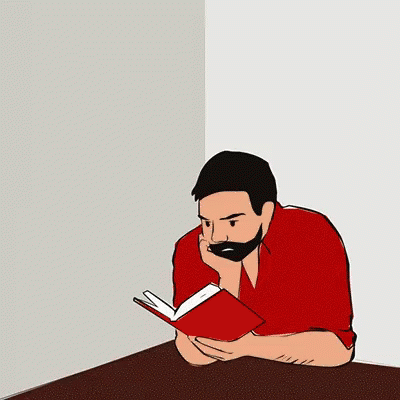or, Why don’t you fear God?
Commentator J. Vernon McGee said it best, so I’ll just let him open up this article:
“There is nothing meaner than a Christian when he is mean.”

In all seriousness, some of most petty, small, and downright hateful interactions I’ve witnessed or heard about have involved other believers. I don’t know what it is exactly, but Christians can be terrible people, and no more so than when we think we’re being helpful. The best advice seems to go down not like a spoonful of sugar, but a hemlock martini.
We’ve seen how things went for Job after his 3 friends – Eliphaz, Bildad, and Zophar – got ahold of him. Now, they’re ready for round 2 after listening to Job carry on and refute their supposedly solid arguments.

Then Eliphaz the Temanite answered and said:
I’m actually going to take a detour here to make a point: we shouldn’t counsel someone by answering them.
Let that sink in for a minute. When you are going through a rough time, you don’t want someone else to come up with an answer, do you? I mean, ultimately you do, but not in your lowest moments. You want to be consoled, you want to be comforted, you want to know that you’re not walking alone. You don’t want someone to try to rationalize anything because your mind is anything but rational.
That may be the chief fault with these 3 men, other than presuming to know the mind of God Almighty. They are try to answer Job rather than soothe him. They are trying to explain his troubles rather than merely sympathize with him. Above all, they lay the blame at his feet instead of simply throwing an arm over his shoulder and bawling their eyes out with him.
Pro tip: when you see someone in tears over a great loss or hurt, never try to answer it. Just be there. It may seem like you’re not doing anything, but I promise you’ll both be much better off.
Now that that’s out of the way, let’s see HOW NOT TO DO IT.
Should a wise man answer with windy knowledge, and fill his belly with the east wind? Should he argue in unprofitable talk, or in words with which he can do no good?

All he’s doing here is repeating back Job’s accusations of being windy and wordy! He’s turning Job’s insults back on him, accusing him of being a windbag! He thinks Job’s mourning is just blabber, and that he’s wasting his time in crying out to God.
Why would ANYBODY think this is okay to say to someone whose eyes are red from crying? Why, I ask you, why?
Look at verse 3 as well. By implying that “a wise man” should not engage in “unprofitable talk,” he’s saying that Job is better than his bellyaching and crying. He’s telling a broken man to dust himself off, stand up straight, and act normal. This is not only impossible for Job to do, but is incredible insensitive for Eliphaz to say and shows that he is not only completely oblivious to his friend’s suffering, but also just wants to win the argument and be proved right.
But you are doing away with the fear of God and hindering meditation before God. For your iniquity teaches your mouth, and you choose the tongue of the crafty. Your own mouth condemns you, and not I; your own lips testify against you.
Here’s where Eliphaz really gets going. Instead of trying to get to God to plead his case, he says that Job is actually running away from God and is getting trapped in his own words. He’s jumping on the blame wagon with Bildad and Zophar, and does not hesitate to accuse Job directly of his sin. In fact, he’s content to just sit by and let Job hang himself.
Are you the first man who was born? Or were you brought forth before the hills? Have you listened in the council of God? And do you limit wisdom to yourself? What do you know that we do not know? What do you understand that is not clear to us? Both the gray-haired and the aged are among us, older than your father.
He tries to humble Job here, because he thinks Job is comparing himself with God and getting full of himself. He tries to remind Job with very direct and forceful talk that he has limited perspective, and that he cannot claim any special knowledge. Which is interesting, because during his first speech Eliphaz claimed special knowledge that nobody else knew.

It is here that we can cautiously infer that they have indeed drawn a crowd. Remember that intellectual discussion and debate were public spectacles for this culture, and even though Job was destitute they were still likely in a place accessible by the public. Job and his 3 friends have eloquent and elaborate points and counterpoints to make, and they all do so with style (if not grace). By citing “the gray-haired and the aged,” Eliphaz might be referring to the village elders who had gathered to see if these men would present sound positions, judging them on both their beliefs and the articulation of those beliefs. (Their lifespans were also much longer during those days, so the statement of men “older than [Job’s] father” can still be valid.)
Are the comforts of God too small for you, or the word that deals gently with you? Why does your heart carry you away, and why do your eyes flash, that you turn your spirit against God and bring such words out of your mouth?
Eliphaz basically says he is speaking God’s comfort into Job’s situation, and condemning him for getting caught up in his emotions. This is where most of us go wrong when we think we are giving a “biblical” answer to someone’s grief. No matter how well we have interpreted Scripture and applied it, many times what we consider to be the comfort of the Holy Spirit actually makes things worse. I won’t say this happens every time, but it happens a lot.
We can also rebuke someone for turning their back on God, which can happen if a grieving period goes on longer than we think it should (note, longer than we think it should). This is also the wrong tactic, since they have likely not completely abandoned their faith but are simply questioning it. This is right where Job is now: not giving up on God, just questioning how God works. As long as we keep searching, there is nothing wrong with that.
And I’m sorry, but if Job is caught up in his emotions, given what he’s gone through I think I can cut him some slack!
What is man, that he can be pure? Or he who is born of a woman, that he can be righteous? Behold, God puts no trust in His holy ones, and the heavens are not pure in His sight; how much less one who is abominable and corrupt, a man who drinks injustice like water!

Eliphaz must think Job didn’t hear him the first time, because he repeats his main point from chapter 4: God can’t even trust the angels, so why would He trust human beings to be good? He does embellish it a little, with the backhanded accusation that Job is not only sinful, but wantonly sinful to the point of “drinking injustice like water.”
I will show you; hear me, and what I have seen I will declare (what wise men have told, without hiding it from their fathers, to whom alone the land was given, and no stranger passed among them).
Two things here.
One, Eliphaz is putting Job on notice, telling him, “You listen, and you listen good.”

Next (and this is just me talking, not necessarily a theologian), I think Eliphaz could have been a little racist. Look at what he says again in verse 19:
to whom alone the land was given, and no stranger passed among them).
Full disclosure, I wrote this article during the racial protests of 2020, so I could be viewing this through an unfair lense and I could be reading more meaning into the text than is actually there. But based on what’s written, Eliphaz might be saying that he thinks the land was better, and the people wiser, when foreigners hadn’t come in and brought their influence. This would fall in line with prevalent cultural prejudices found in every nation during this time period, so it wouldn’t be too much of a stretch to guess that this was at least part of the motivation behind this statement.

Okay fine, mysterious GIF placement spirit, I’ll keep going…
Eliphaz then starts to paint a picture of a sinful man for Job, in the hopes that Job will see himself portrayed (at least, that he will see how Eliphaz thinks he should see himself). Matthew Henry says of this device, “Here [Eliphaz] thinks that application easy, and that Job might, in this description, as in a glass, see his own face.” This happens elsewhere in Scripture too; most prominently, the prophet Nathan confronted David’s sin by telling an analogous story to provoke outrage in David against robbing his neighbor, only to reveal that David was just as guilty.
It’s a longer passage, but let’s see what he says:
The wicked man writhes in pain all his days, through all the years that are laid up for the ruthless. Dreadful sounds are in his ears; in prosperity the destroyer will come upon him. He does not believe that he will return out of darkness, and he is marked for the sword. He wanders abroad for bread, saying, “Where is it?” He knows that a day of darkness is ready at his hand; distress and anguish terrify him; they prevail against him, like a king ready for battle. Because he has stretched out his hand against God and defies the Almighty, running stubbornly against Him with a thickly bossed shield; because he has covered his face with his fat and gathered fat upon his waist and has lived in desolate cities, in houses that none should inhabit, which were ready to become heaps of ruins; he will not be rich, and his wealth will not endure, nor will his possessions spread over the earth; he will not depart from darkness; the flame will dry up his shoots, and by the breath of his mouth he will depart. Let him not trust in emptiness, receiving himself, for emptiness will be his payment. It will be paid in full before his time, and his branch will not be green. He will shake off his unripe grape like the vine, and cast off his blossom like the olive tree. For the company of the godless is barren, and fire consumes the tents of bribery. They conceive trouble and give birth to evil, and their womb prepares deceit.
Here’s the highlights of Eliphaz’s poor unfortunate soul.

My, the GIF spirit is feisty today, isn’t it?
Anyways, here’s what we can see about Eliphaz’s… um… loser.
First, he is fearful without cause. He’s always on the alert, because his wicked nature makes him think everyone is out to get him. He’s always afraid of where his basic provisions will come from, and he always feels a shadow lurking over his shoulder. Using the image of “a king ready for battle,” he compares the wicked man to someone who is always ready to wage war even though there is no need to.
Next, he has relied on his own strength and wealth to save him. He’s turned his back on God, and actively works to remove God’s influence and authority. By saying he has “gathered his fat upon his waist,” this corpulent coward (alliteration is fun) is trusting in his wealth to redeem him. By living “in desolate cities,” he is removing himself from positive reinforcement and retreating to dangerous places that cannot adequately protect him.
Next, he cannot escape his fate. No matter what he hides behind, no matter how much wealth he amasses, the wicked man will die just like everyone else.
Finally, Eliphaz openly insults this wicked man for his sinfulness, challenging his faithlessness and reminding him that he will suffer a sad and empty fate. He is likely hoping that this will somehow convince Job to turn over a new leaf. Excellent attempt at reverse psychology, bub.

Lest we let ourselves get hung up on the repetition, let’s be sure to see that everyone is really ramping up their bluntness here. Eliphaz began with a hypothetical supposition, which Bildad and Zophar turned into full-blown jerk mode. Now, Eliphaz is taking off the kid gloves and comparing Job to the worst of humanity. Some aspects hold steady, but things are definitely heating up in the land of Uz.
I wonder how Job handles this string of fresh insults?

Okay, now you’re just trying to finish my thoughts, GIF placement spirit!

STOP IT! Just click to the next post, please!